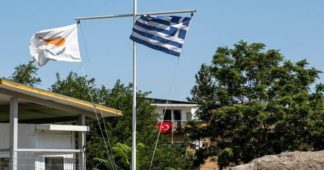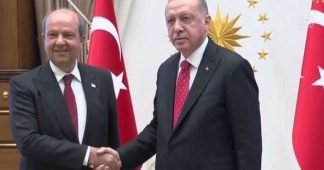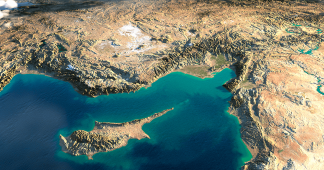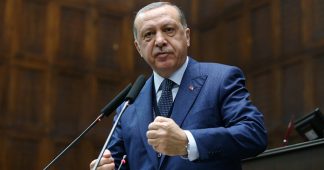The violent attack on Unficyp personnel in the buffer zone by Turkish Cypriot soldiers and policemen, some in plain clothes was universally condemned by the international community. Never before has an incident in the buffer zone been condemned in such unequivocal terms by the UN Secretary-General, four of the five permanent members of the Security Council (the Russian Federation was the exception) and top officials of the European Commission.
Then again, never before had the Turkish Cypriot security forces physically attacked UN peacekeepers, used diggers to remove UN vehicles from their path and shown such utter disregard for the buffer zone status, which is under the authority of Unficyp. There have been infringements of the buffer zone over the years, which were eventually settled by the peacekeeping force, but what happened on Friday was unprecedented and deeply disturbing.
The Turkish Cypriots, acting on orders from their ‘government’ or from Turkey, overstepped every bound of acceptable behaviour, ignoring the orders of Unficyp, engaging in a physical fight with peacekeepers, injuring three of them, and bulldozing UN vehicles out of their way. It was a naked show of force suggesting the Turkish side no longer accepts Unficyp’s authority over the buffer zone and was challenging the status quo.
Such was the seriousness of the Turkish violations even UNSG Antonio Guterres took a strong stand. In a statement he issued in the early hours of Saturday, he said “threats to the safety of UN peacekeepers and damage to UN property are unacceptable and may constitute a serious crime under international law.” He urged the Turkish Cypriot side “to respect the authority of Unficyp as mandated by the Security Council and to withdraw all personnel and machinery from the buffer zone immediately.”
The question is what was the reasoning behind this action? Had the Turkish Cypriot leader Ersin Tatar calculated that there would be no attempt by Unficyp to stop work on the construction of a road linking Pyla to Arsos that would pass through the buffer zone? A request to build the road, for ‘humanitarian reasons’ had been submitted to Unficyp by the Turkish Cypriot side some months ago, according to Tatar. They were ready to start work in June, but had been delayed by Unficyp, which had not given the go-ahead, so Tatar decided to go ahead with the project regardless.
As regards the violence, the Turkish Cypriot side tried to justify it by claiming Unficyp personnel had tried to stop work taking place on ‘TRNC’ territory – not in the buffer zone – and its forces were entitled to react in the way they did. It is very difficult to believe the Unficyp personnel ventured out of the buffer zone but the Turkish Cypriot side had to find an excuse for its actions as the delayed response by the UN special representative Colin Stewart could not have justified the resort to violence.
Although Ankara avoided involvement, apart from Turkey’s foreign minister Hakan Fidan informing his French counterpart by phone that the road was being constructed for “purely humanitarian purposes,” it is very doubtful the Turkish Cypriots would have taken such forceful action without Ankara’s go-ahead. This raises the question of what Turkey was hoping to achieve at a time when President Tayyip Erdogan is trying to improve relations with the EU, has agreed to start dialogue with Greece and has indicated that Turkey would not oppose Cyprus settlement talks. What had he hoped to achieve through a confrontation with Unficyp that was certain to have drawn universal condemnation?
Was it a bad miscalculation or was this meant as a message to the Greek Cypriot side of what to expect in the absence of a settlement? Probably both, and this underlined the assertion made repeatedly by President Nikos Christodoulides that the maintenance of the status quo was not a viable option. If Unficyp is withdrawn in a year or two, who would protect the buffer zone and who would stop the Turks if they decided to move their troops into it? The status quo’s permanence is guaranteed by nobody, as Christodoulides, correctly, has been pointing out to stress the need for a settlement.
It is difficult to predict how the Pyla situation will be resolved. Unficyp cannot attempt to persuade the Cyprus government to agree to the Pyla-Arsos road as it would, in effect, be seen to be rewarding the ‘state’-sponsored violence against UN personnel. As for the Turkish side, would it accept that it was in the wrong and stop the roadworks until the matter is settled by Unficyp at some point in the future? What would happen if the Turkish side decides to up the ante by carrying on with the work in the buffer zone?
Unficyp said it was prepared to stop any work in the buffer zone. On Saturday there were reports about the Turkish Cypriots resuming work outside the buffer zone as a Turkish Cypriot official said work had slowed down because it was the weekend, the implication being that the workforce will return on Monday. It remains to be seen whether the workers will try to enter the buffer zone and how Unficyp will respond.
We remind our readers that publication of articles on our site does not mean that we agree with what is written. Our policy is to publish anything which we consider of interest, so as to assist our readers in forming their opinions. Sometimes we even publish articles with which we totally disagree, since we believe it is important for our readers to be informed on as wide a spectrum of views as possible.










